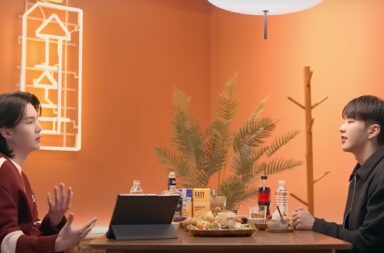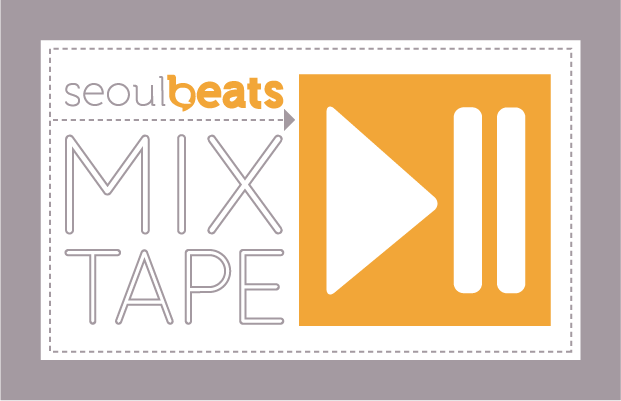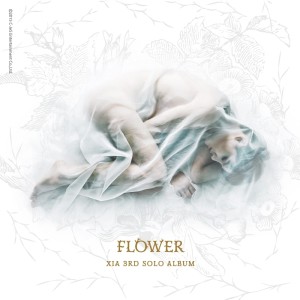 There’s not much one can say about Kim Junsu without devolving into fan-girl fawning. He just elicits that reaction from people, especially his most ardent fans. With his third solo release, Flower, the vocalist has promised us music that we’ve never heard from him before. With that came new imagery and a new level of audaciousness that, at times, pushed beyond the boundaries of the pop music currently coming out of Korea.
There’s not much one can say about Kim Junsu without devolving into fan-girl fawning. He just elicits that reaction from people, especially his most ardent fans. With his third solo release, Flower, the vocalist has promised us music that we’ve never heard from him before. With that came new imagery and a new level of audaciousness that, at times, pushed beyond the boundaries of the pop music currently coming out of Korea.
I continue to be surprised by the tracks that open Junsu’s albums. They always come from a place that’s unexpectedly more intimate than what his lead singles suggest. Such is the case with “Reach.” The song is wrought with an incredible amount of soul, the crack and timbre of Junsu’s voice peaking and flying out to pierce the heart of the listener. Musically it’s a lamenting piece of R&B, erring on the side of light pop-infused blues instead of focusing on the rhythm. The context of the song most certainly earns that emotional depth. Junsu takes a classic trope just a step further, speaking of losing a part of himself, but in the same breath wanting to erase the emotional scarring of his former lover.
Listen to this song, know my heart
Look into my eyes, you already know
If I could only wash away the scars in your heart
I only have late regrets
I’ll shout with my entire body, it’s only you
On the other hand, “Butterfly” is a song about self-reflection, isolation, growth and transformation. Junsu speaks of those moments in which he was lost or confused, when he spent moments reflecting on time that’s past, dreams he’s let die or that have fallen to the wayside. But even in those moments of loss and separation of self, Junsu has managed to grasp onto new dreams. Fear of the unknown may have overwhelmed him, but he never let it stop him, proclaiming, “It’s my own way.”
So I take one more step
As I feel the sky that fills my heart
Even if I want to escape
Even if I want to avoid it
I need to be strong
A good artist can tell a story; a great artist can put each of his listeners inside that story no matter whose it is. “Flower” takes all the anger, all the rage of being held back, being lied to and led astray and turns it into a powerful piece of artistry, the likes of which we haven’t seen from Junsu before. The music turns Junsu’s lyrics into a war cry, takes the words and twists them into something with astonishing power and meaning: “The countless scars that imprison me. They’re like sad thorns that dig into me.”
[youtube http://youtu.be/TK9gEpUVFyo]The music serves as the perfect conduit for Junsu’s lyrics. It’s heavy in that way a hymn is heavy: laden with emotion and thematic weight. While there are certainly large moments — compliments of bode instruments and the ever-increasing crescendo of the soprano — what gives “Flower” its strength are the moments of softness that serve as the song’s foundation. Junsu’s voice is raw with emotion. You can feel the scratch of each note as it passes through his throat.
Tablo’s contribution adds splashes of red to this portrait Junsu paints for us. Very rarely does a rapper manage to add scope to a song he’s featured on, rather using his name to promote himself instead of giving the song’s story another layer. But Tablo uses his amazing storytelling skills to add aggressive self-righteousness, the kind that makes men and women rise up and declare themselves ready for battle.
Contrary to “Flower,” the power of “My Night” lay in just how soft and pristine it is. The balladry is supple yet incredibly simplistic. It’s soft in intention while “Flower” was loud and brazen. It’s inquisitive in a way that hints at desperation and a deep yearning thirst, but it never pushes for more: “All day, I call out to you. If I close my eyes, will I see you?”
The next part of the album goes for more of what fans may expect from someone so entrenched in dance. We start to get to the sex and grime of the man, the playful flirtation he reveals in his performances. “Out of Control” has a frenzied compositional foundation undercut with a teasing buzz and throbbing beat. Junsu challenges his listeners, asking with a grin and a wink, “Do I look easy because I smile every time?” Taking the challenge further he declares, “You don’t know anything about me.” Featuring the drawl and garble of YDG, the song hits hard and takes the album in a completely different direction.
With the aggression of “Out of Control” Flower sets listeners up for something a little bit spicier than what the first part of the album suggest. “X Song” is a dance track that leaves very little to the imagination. This time Junsu puts the dare directly onto the listener. He wants to see how far he has to push you before you tremble in his hands:
From A to Z, I like everything about you
I start with ABCDE then I forget everything
It’s no use even if I start singing the national anthem
From my head to my toes, everything tingles
Out of the coy and crass of the previous songs we get a song that’s more about exploring love’s sentimentality. “License to Love” is a lovely bit of sweet and sincere to wash down the dirty we were given before. Junsu’s begging to know what he has to do to get the right to love the woman of his dreams.
[soundcloud url=”https://api.soundcloud.com/tracks/193938639″ params=”color=ff5500&auto_play=false&hide_related=false&show_comments=true&show_user=true&show_reposts=false” width=”100%” height=”166″ iframe=”true” /]The musical landscape of the song is almost poetic. The use of synths and a sparse beat lends itself graciously to the largeness of Junsu’s vocal and the intimacy of the lyrical content. It’s a ballad, but without the shyness or even cloying topcoat of most ballads. It’s emotional without being disingenuous, a sweet derived from Sugar in the Raw instead of confectioner’s.
Junsu gives us a heavy nod to the stage with “Musical in Life.” We’re by now all well-versed in his musical career, but instead of opting for the grandiosity of Mozart or Elisabeth, we get Guys ’N’ Dolls and Thoroughly Modern Millie. It’s a tap dance, a quirky bit of sentimentality that’s as much a love note to the stage as it is a lament about how the stage has become something of a substitute to the life he’d like to live:
On the stage, yoo hoo, however I want
On the stage, yoo hoo, let’s look at everyone
When will I play Mozart if not now? The musical genius
On the stage, yoo hoo, it may not be reality
But I don’t care, I will be in love too
Junsu truly comes to life inside his music. His lyrics are always raw, always telling, but never ironic or steeped in anything feinted. “Musical in Life” is Xia at his must “Junsu,” if you will — cheeky, honest, unapologetic, yet positively clever.
“Love You More” is an inspirational bit of prettiness that indulges our need for the sentimental. Our protagonist implores someone he cares deeply for to lean on him in times when the world gets a little too close for comfort and leaves them frightened: “Always come to me and lean on me. I hope you’ll just think of me. Forget the sounds of the world for a moment tonight.” Musically it’s not grand or self-imposing. It’s comforting, warm. There’s tenderness in the notes, a pounding beat keeping rhythm and giving cushion and stability to the handclaps.
As we enter Flower’s last movement, we’re given some of the high energy that Junsu’s known for. “F.L.P.”— meaning “Feels Like Paradise”— is a straight club banger. With lyrics like “Have a drink (one shot) scream (turn on the lights). Go crazy,” the song is straight no chaser, just a fun song to get hype to.
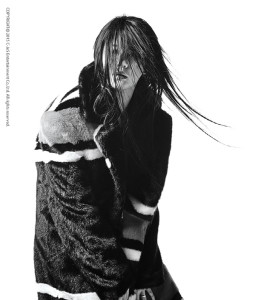 Then Junsu turns sharply left and gives us a Slow Jam, a tune from the early to mid-’90s from the likes of Gerald Levert and Atlantic Starr that you put on when you’re in the mood for some romance. Whoever put Miki Howard and Peabo Bryson on Junsu’s iPod should be given an award. “Hello Hello” is classic R&B, the soprano saxophone serenading the listener throughout the song’s entirety, a sultry bass line and a drumbeat that’s more a pulsating throb keeping time to a couple’s lovemaking. It could be argued everything Junsu does has baby-making intentions, but “Hello Hello” was built for a tumble between the sheets. The lyrics are more lament than soft caress, but the repeated chorus of “Hello, hello” gives the song its romantic inclinations.
Then Junsu turns sharply left and gives us a Slow Jam, a tune from the early to mid-’90s from the likes of Gerald Levert and Atlantic Starr that you put on when you’re in the mood for some romance. Whoever put Miki Howard and Peabo Bryson on Junsu’s iPod should be given an award. “Hello Hello” is classic R&B, the soprano saxophone serenading the listener throughout the song’s entirety, a sultry bass line and a drumbeat that’s more a pulsating throb keeping time to a couple’s lovemaking. It could be argued everything Junsu does has baby-making intentions, but “Hello Hello” was built for a tumble between the sheets. The lyrics are more lament than soft caress, but the repeated chorus of “Hello, hello” gives the song its romantic inclinations.
The final songs of the album seem more of a wrap-up than anything else. “Hate Those Words” and “Love Breath” are traditional drama OST balladry. The former speaks of wanting to rid the soul of a love gone wrong. While compositionally the most obviously trope-centric piece on the album, lyrically the bitterness is heavy: “Is it what I have to do? Do I have to hate you? Should I forget you without knowing why?”
Closing the album, “Love Breath” is a declaration of love. Away from the world and everything that can distract him from who he is, he finds his home in the one he loves: “I’m more comfortable inside you than a big house. Always, the place that embraces me.”
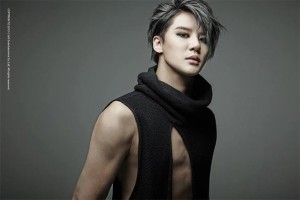 While admittedly pretty, these two songs seem out of place among the more compositionally experimental or even lyrically interesting pieces. Even the dance numbers, though not my cup of tea, are by their very nature more exciting. In all honesty, Flower could’ve been two songs lighter and left a deeper impact. That being said, people love their illustrious ballads with big vocals and sweeping strings. But honestly these songs could’ve been on any album or simply been placed on an OST for a romantic comedy.
While admittedly pretty, these two songs seem out of place among the more compositionally experimental or even lyrically interesting pieces. Even the dance numbers, though not my cup of tea, are by their very nature more exciting. In all honesty, Flower could’ve been two songs lighter and left a deeper impact. That being said, people love their illustrious ballads with big vocals and sweeping strings. But honestly these songs could’ve been on any album or simply been placed on an OST for a romantic comedy.
Flower is far closer to the skin than anything Junsu’s released. The first third of the album is full of songs that are about self-reflection and redemption, the next few songs range from the raunchy to the lovely, while the final third peels back the layers of Junsu’s sensuality. This is the most impressive album Junsu’s ever offered. It’s complex, emotional, sexy, personal, and there’s an undercurrent of vulnerability throughout, as if he’s taking huge pieces of himself and putting them on display for an audience’s assessing eye. Flower is truly a gift, and we should all be thankful Junsu gave us the privilege to unwrap it and bask in its brilliance.
4.5/5
(Images via C-JeS Entertainment, pop!gasa, YouTube, Soundcloud)
